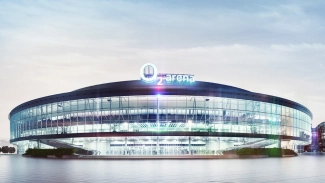Názor k článku Tržní podíly výrobců GPU: prodej karet klesl o 40 %, Radeony na historických minimech od tombomino - Hnizdo...pristizeny lhar, ktery rve 'vsichni lzou' :)) Ty...
-

Hnizdo...pristizeny lhar, ktery rve 'vsichni lzou' :)) Ty jsi se povedl, tebe hned tak nekdo nevymysli :D
Hele budulinku, tady mas cely ten text. Vypichnu ve zkratce 2 veci, zbytek, at si kazdy precte sam
- BOD c1.: MSI je mensi firma a nemuze si dovolit v teto dobe experimentovat s dalsimi platformami.
- BOD c.3: MSI dostava silnou podporu od Intelu v dobe zhorsenych dodavek a proto by bylo neprijmene prijit s podporou novych produktu na bazi AMD a nepouzivat 100% Intel.
Jinymi slovy, MSI nabidku AMD nepotrebuje a nechce si nastvat ani Intel. Nechce se ji investovat do AMD produktu, kdyz ma svoje s Intelem jiste. Cili to, co tady od zacatku tvrdi Tynyt.
Original textu...
- Experimentation: MSI is a smaller company than some and can't afford to experiment with different platforms right now. "I always say 'we are not big enough to make it so complicated,'" he told us. He cited all of the different gaming laptop SKUs MSI makes, from the high-end GT series to the budget GLs, when saying that their lineup is already pretty complex. He also posited that it, given the company's focus on optimizing the user experience, going with AMD adds another layer of complexity.
- Prior bad experience: MSI has used AMD processors in its systems before, but apparently had a bad experience. "At that time, their product was not right and their support was not that good," Chiang said. He didn't say which AMD CPU he was referring to, but we know that 2012's MSI GX60 had an AMD A10 chip inside. Our sister site, Laptop Mag, reviewed that laptop at the time and really liked the performance and battery life.
- Relationship with Intel: Chiang told us that, given Intel's strong support during the shortage, it would be awkward to tell Intel if he chose to come out with an AMD-powered product. "It's very hard for us to tell them 'hey, we don't want to use 100 percent Intel,' because they give us very good support," he said. He did not, however, make any claims that Intel had pressured him or the company.
-
Václav Větvička|Včera
-
Jan Olšan|20. 12. 2024
-
Dominik Dobrozenský|20. 12. 2024
-
Radomír Kejduš|20. 12. 2024





























